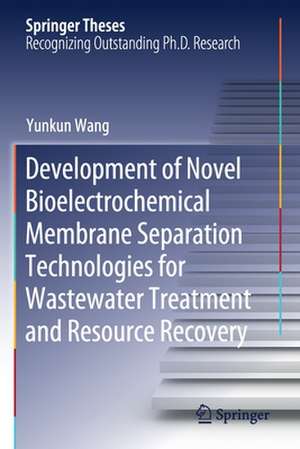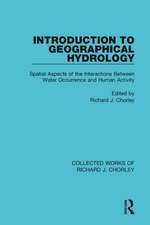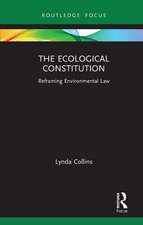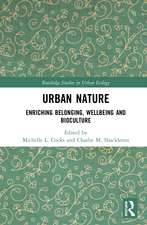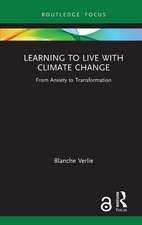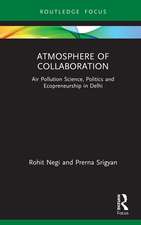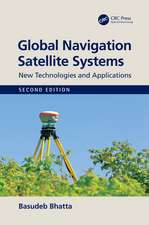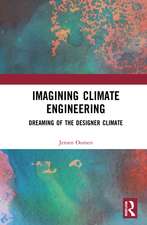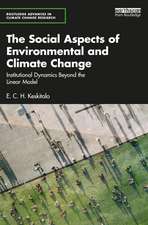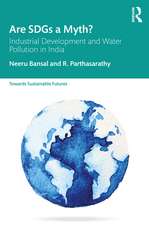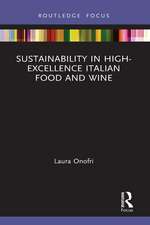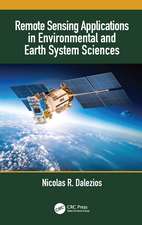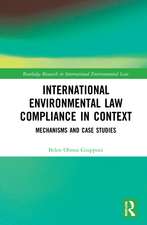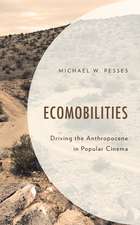Development of Novel Bioelectrochemical Membrane Separation Technologies for Wastewater Treatment and Resource Recovery: Springer Theses
Autor Yunkun Wangen Limba Engleză Paperback – 31 mar 2021
| Toate formatele și edițiile | Preț | Express |
|---|---|---|
| Paperback (1) | 634.32 lei 6-8 săpt. | |
| Springer Nature Singapore – 31 mar 2021 | 634.32 lei 6-8 săpt. | |
| Hardback (1) | 640.37 lei 6-8 săpt. | |
| Springer Nature Singapore – 31 mar 2020 | 640.37 lei 6-8 săpt. |
Din seria Springer Theses
- 18%
 Preț: 997.88 lei
Preț: 997.88 lei -
 Preț: 389.88 lei
Preț: 389.88 lei - 15%
 Preț: 646.94 lei
Preț: 646.94 lei - 18%
 Preț: 943.43 lei
Preț: 943.43 lei -
 Preț: 399.29 lei
Preț: 399.29 lei - 18%
 Preț: 944.99 lei
Preț: 944.99 lei - 15%
 Preț: 636.80 lei
Preț: 636.80 lei - 18%
 Preț: 941.05 lei
Preț: 941.05 lei - 15%
 Preț: 643.16 lei
Preț: 643.16 lei - 15%
 Preț: 642.68 lei
Preț: 642.68 lei - 18%
 Preț: 1103.62 lei
Preț: 1103.62 lei - 20%
 Preț: 558.83 lei
Preț: 558.83 lei - 18%
 Preț: 1112.30 lei
Preț: 1112.30 lei - 18%
 Preț: 944.19 lei
Preț: 944.19 lei - 18%
 Preț: 1109.92 lei
Preț: 1109.92 lei - 18%
 Preț: 1217.27 lei
Preț: 1217.27 lei - 15%
 Preț: 640.06 lei
Preț: 640.06 lei - 15%
 Preț: 636.45 lei
Preț: 636.45 lei - 15%
 Preț: 640.06 lei
Preț: 640.06 lei - 15%
 Preț: 640.88 lei
Preț: 640.88 lei -
 Preț: 389.70 lei
Preț: 389.70 lei - 20%
 Preț: 563.91 lei
Preț: 563.91 lei -
 Preț: 393.35 lei
Preț: 393.35 lei - 15%
 Preț: 637.93 lei
Preț: 637.93 lei - 15%
 Preț: 641.85 lei
Preț: 641.85 lei - 18%
 Preț: 1225.94 lei
Preț: 1225.94 lei - 20%
 Preț: 551.36 lei
Preț: 551.36 lei - 18%
 Preț: 1229.10 lei
Preț: 1229.10 lei - 15%
 Preț: 639.25 lei
Preț: 639.25 lei - 18%
 Preț: 999.45 lei
Preț: 999.45 lei - 15%
 Preț: 640.06 lei
Preț: 640.06 lei - 18%
 Preț: 1220.45 lei
Preț: 1220.45 lei - 18%
 Preț: 1116.26 lei
Preț: 1116.26 lei - 18%
 Preț: 1110.72 lei
Preț: 1110.72 lei - 18%
 Preț: 1000.87 lei
Preț: 1000.87 lei - 18%
 Preț: 891.17 lei
Preț: 891.17 lei - 15%
 Preț: 640.06 lei
Preț: 640.06 lei - 5%
 Preț: 1154.07 lei
Preț: 1154.07 lei - 15%
 Preț: 635.96 lei
Preț: 635.96 lei - 15%
 Preț: 640.88 lei
Preț: 640.88 lei -
 Preț: 387.20 lei
Preț: 387.20 lei - 18%
 Preț: 1109.92 lei
Preț: 1109.92 lei -
 Preț: 385.25 lei
Preț: 385.25 lei -
 Preț: 385.25 lei
Preț: 385.25 lei - 18%
 Preț: 1112.30 lei
Preț: 1112.30 lei - 18%
 Preț: 999.45 lei
Preț: 999.45 lei -
 Preț: 386.99 lei
Preț: 386.99 lei - 15%
 Preț: 637.13 lei
Preț: 637.13 lei - 20%
 Preț: 554.21 lei
Preț: 554.21 lei - 20%
 Preț: 555.59 lei
Preț: 555.59 lei
Preț: 634.32 lei
Preț vechi: 746.26 lei
-15% Nou
Puncte Express: 951
Preț estimativ în valută:
121.39€ • 126.27$ • 100.22£
121.39€ • 126.27$ • 100.22£
Carte tipărită la comandă
Livrare economică 14-28 aprilie
Preluare comenzi: 021 569.72.76
Specificații
ISBN-13: 9789811530807
ISBN-10: 9811530807
Ilustrații: XIV, 157 p. 69 illus., 49 illus. in color.
Dimensiuni: 155 x 235 mm
Greutate: 0.25 kg
Ediția:1st ed. 2020
Editura: Springer Nature Singapore
Colecția Springer
Seria Springer Theses
Locul publicării:Singapore, Singapore
ISBN-10: 9811530807
Ilustrații: XIV, 157 p. 69 illus., 49 illus. in color.
Dimensiuni: 155 x 235 mm
Greutate: 0.25 kg
Ediția:1st ed. 2020
Editura: Springer Nature Singapore
Colecția Springer
Seria Springer Theses
Locul publicării:Singapore, Singapore
Cuprins
Introduction.- Research background.- Intermittently aerated membrane bioreactor technologies for nutrients removal and phosphate recovery.- Anaerobic hybrid membrane bioreactor technology for refractory organic pollutant removal.- Electrochemical membrane bioreactor technologies for sustainable wastewater treatment.- In-situ utilization of generated electricity to mitigate membrane fouling.- In-situ utilization of generated electricity for nutrient recovery.- Conclusion.- acknowledgement.- Academic papers and patents during doctoral studies.
Notă biografică
Dr. Yunkun Wang received his Ph.D. in Environmental Engineering from University of Science & Technology of China in 2014. He is currently an associate professor at the School of Environmental Science and Engineering, Shandong University, China, involved in developing membrane-based technologies for sustainable wastewater treatment. Originally trained as an environmentalist, Dr. Yunkun Wang adopts multidisciplinary approaches to tackle environmental problems, especially water pollution issues. His research interest lies in the development of novel membrane separation materials and processes for water treatment and resources recovery, with over 40 research papers published, including Environmental Science & Technology, Water Research and Science Advances. He was awarded by Chinese Academy of Sciences with the Excellent Doctoral Dissertation.
Textul de pe ultima copertă
The most commonly used biological wastewater treatment technologies still have serious technical-economical and sustainability-related limitations, due to their high energy requirements, poor effluent quality, and lack of energy and resource recovery processes. In this thesis, novel electrochemical membrane bioreactors (EMBRs), which take advantage of membrane separation and bioelectrochemical techniques, are developed for wastewater treatment and the simultaneous recovery of energy and resources. Above all, this innovative system holds great promise for the efficient wastewater treatment and energy recovery. It can potentially recover net energy from wastewater while at the same time harvesting high-quality effluent. The book also provides a proof-of-concept study showing that electrochemical control might offer a promising in-situ means of suppressing membrane fouling. Lastly, by integrating electrodialysis into EMBRs, phosphate separation and recovery are achieved. Hence, these new EMBR techniques provide viable alternatives for sustainable wastewater treatment and resource recovery.
Caracteristici
Nominated as an outstanding PhD thesis by the University of Science and Technology of China Provides new strategies for effective carbon and nitrogen removal and phosphorus recovery in membrane bioreactors Develops novel electrochemical membrane bioreactors techniques and methods for in-situ utilization of generated electricity
